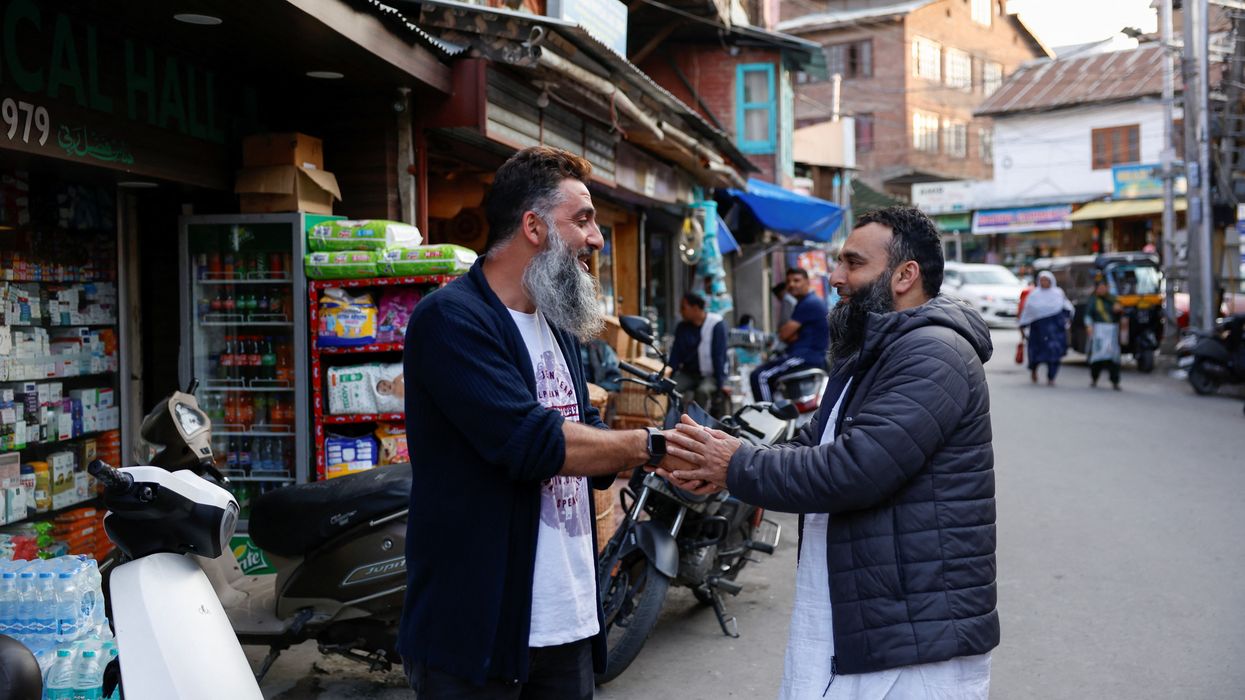A FRAGILE ceasefire between India and Pakistan held on Sunday after four days of intense fighting, even as both sides accused each other of violating the truce overnight.
The ceasefire agreement was announced on Saturday following US diplomatic intervention and pressure. But hours later, India said Pakistan had violated the understanding and its armed forces were "giving an adequate and appropriate response". Pakistan said it was committed to the ceasefire and blamed India for the violations.
"Notwithstanding the violations being committed by India in some areas, our forces are handling the situation with responsibility and restraint," Pakistan's foreign ministry said.
India’s foreign secretary Vikram Misri said earlier that both sides would “stop all firing and military action on land, air and sea” from 5:00 pm (1130 GMT) on Saturday, but later accused Pakistan of “repeated violations”. He said Indian forces had been instructed to “deal strongly” with any repetition.
ALSO READ: What is Operation Sindoor, India's strikes in Pakistan?
The fighting was triggered by an attack last month in Pahalgam, in Indian-administered Kashmir, in which 26 people, mostly Hindu tourists, were killed. India blamed the Pakistan-based Lashkar-e-Taiba, a UN-designated terrorist organisation, for the attack. Pakistan denied involvement and called for an independent probe.
The countries exchanged jet fighter, missile, drone and artillery strikes in the following days. The recent skirmishes have killed nearly 70 people and displaced thousands along the border and in divided Kashmir.
Blasts from air-defence systems were heard in cities near the border under blackout on Saturday night, authorities and residents said. By Sunday morning, the fighting had subsided and power was restored in most areas of India’s border towns.
AFP staff in Srinagar reported loud explosions, while a senior official in Pakistani-administered Kashmir said "intermittent exchange of fire is ongoing" along the Line of Control. Officials in Pakistan said there was some firing in Bhimber but no casualties.
ALSO READ: India's response to Pahalgam attack was limited to terror targets: Vikram Doraiswami
US president Donald Trump announced the ceasefire on Saturday on Truth Social. “After a long night of talks mediated by the United States, I am pleased to announce that India and Pakistan have agreed to a FULL AND IMMEDIATE CEASEFIRE. Congratulations to both Countries on using Common Sense and Great Intelligence,” he posted.
In another post, Trump praised the leaders of India and Pakistan for understanding that "it was time to stop the current aggression" and pledged to increase trade “substantially” with both. He also said he would work with New Delhi and Islamabad to "see if, after a 'thousand years,' a solution can be arrived at concerning Kashmir."
US secretary of state Marco Rubio said the ceasefire came after he and vice president JD Vance engaged with senior officials from both countries. Rubio said they had agreed to “start talks on a broad set of issues at a neutral site”.
On X, Pakistan prime minister Shehbaz Sharif said his country “appreciates” the US intervention. India has consistently opposed international mediation on Kashmir.
Indian former foreign secretary Harsh Vardhan Shringla said Sunday the ceasefire “seems to be a temporary situation”. He said, “The Pakistanis were prompted by the Americans,” and called India’s “Operation Sindoor” a success in terms of targeted strikes against terrorists.
Militant activity has increased in Kashmir since 2019, when prime minister Narendra Modi’s government revoked its limited autonomy and brought it under direct rule from New Delhi.
The ceasefire brought some relief to residents on both sides of the border. In Amritsar, sirens sounded to signal a return to normal activities. “Ever since the day terrorists attacked people in Pahalgam we have been shutting our shops very early and there was an uncertainty. I am happy that at least there will be no bloodshed on both sides,” said Satvir Singh Alhuwalia, a shopkeeper in Amritsar.
“More than me, my family is happy because my children and wife have been calling me every hour to check on me. Thank God the ceasefire happened,” said Guruman Singh, a security guard.
In Muzaffarabad, IT consultant Bilal Shabbir said, “The ceasefire is a positive step. In war, it's not just soldiers who die, it's mostly civilians — and in this case, it would have been the people of Kashmir.”
In Srinagar, resident Sukesh Khajuria said, “The ceasefire is welcome, but it's difficult to trust Pakistan. We have to be vigilant.”
Analysts warned of challenges in upholding the agreement. “The ceasefire was cobbled together hastily, and at a moment when tensions were at their highest,” US-based South Asia analyst Michael Kugelman wrote on X. “India appears to have interpreted the deal differently than did the US and Pakistan, and it's likely not keen on the broader talks it calls for. Upholding it will pose challenges.”
The ceasefire was welcomed by several countries, including Britain and Iran, as well as the United Nations. China said it was “willing to continue playing a constructive role” and remained concerned about any escalation, according to state-run Xinhua news agency.
(With inputs from agencies)





